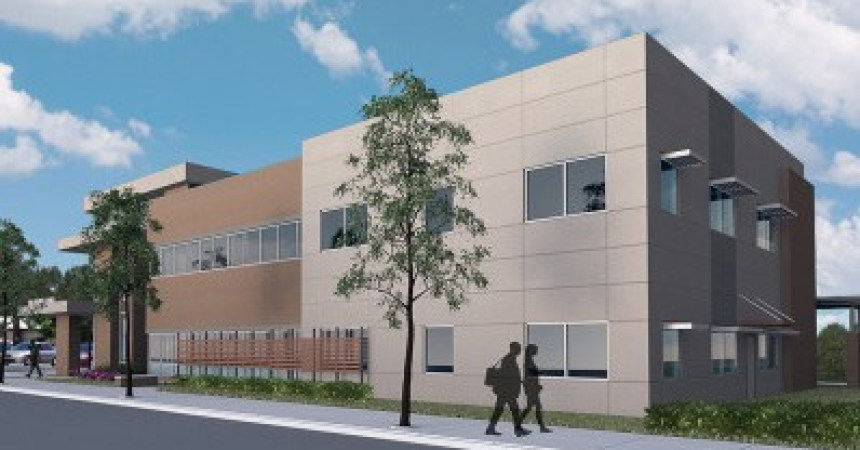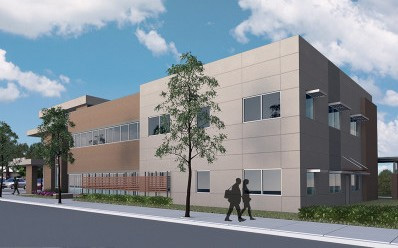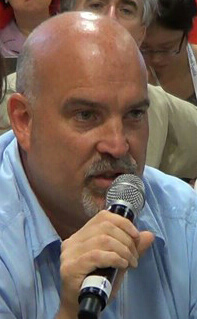
South side health facility could create boon, supporters say

An architectural rendition of the state-of-the-art Care Point Health and Wellness Center.
Photo courtesy Big Bend Cares
By St. Clair Murraine
Outlook Staff Writer
A medical facility being constructed by Big Bend Cares could jump start redevelopment of businesses on the south side of Tallahassee, supporters of the project said.
City Commissioner Curtis Richardson and Rob Renzi, Director of Big Bend Cares, expect the completion of the 27,000-square-foot Care Point Health and Wellness Center to provide jobs in the area. As many as 10 jobs could be created initially, Renzi said.
“It certainly will be an opportunity to create jobs on the south side of town,” said Richardson, who lives on the south side. “This project could be one of the catalysts for increased development on the south side of Tallahassee. This is one of the largest developments that have occurred on the south side probably in the last decade or so.”
Since construction began on the $13 million building more than a month ago, several nearby commercial properties have been sold, Renzi said. The purchases are a sign that business owners are seeing the benefits of locating on the south side, he added.
“It’s an underutilized part of town that hasn’t received the attention that it should have for a long time,” he said.
Care Point Health and Wellness Center will be a one-stop medical facility offering medical services that include doctor visits, labs, infectious disease services, mental health services, substance abuse and pharmacy services.
The project is expected to be completed in September 2017, but has been in the planning stages for at least 10 years, Renzi said.
The building will take up a full block – stretching north from the intersection of Magnolia Drive and Adams Street to Monroe Street, and south to Wallis Street.
However, the project was momentarily slowed by concerns over contamination of the land it’s being built on. The issue was brought to the attention of the Department of Environmental Protection (DEP) in mid-September by Edward Holifield, a medical doctor and community activist.
Holifield said he brought up the issue because of concerns over how the contamination could affect residents of the predominantly Black south side.
DEP sent an email to the Capital Outlook saying the project can continue while an environmental assessment is being completed. Brandy Smith, external affairs manager for DEP, said the property owner was informed of the environmental assessment in a Sept. 21 letter.
A follow-up meeting was held with Big Bend Cares on Sept. 26, according Smith’s email. In it, she also said that Big Bend Cares has 270 days from the Sept. 21 date to inform DEP of clean-up efforts.
“That environmental assessment report should contain their conclusions and recommendations for addressing the contamination to meet the requirements of Chapter 62-780, Florida Administrative Code,” the email from DEP stated.
Holifield also said the use of $1.5 million from the Frenchtown Community Redevelopment Agency (CRA) is another of his concerns about the project.
“That doesn’t only make it just wrong. It makes it immoral,” Holifield said. “You’re going to take tax-payers money from everybody and give it to a bunch of people who say we don’t want to treat people who don’t have health insurance.”
Serving only patients with health insurance will take business away from community health centers on the south side, Holifield contends. However, Richardson said it’s not a legitimate argument because community health centers have their niches in serving uninsured patients.
He went on to say that Big Bend Cares has an established relationship of working with the community health centers.
“I think the partnership will be in the best interest of this entire community because Big Bend Cares serves individuals throughout the city and the county,” Richardson said. “There is no shortage of need for healthcare in our community and I think those agencies working together will be in a better position to address the healthcare need in the community.”
Big Bend Cares, which is currently located across Monroe Street from the proposed facility, normally serves HIV-AIDS patients. However, they now expect to develop a new clientele of residents south of the facility; as well as residents from the Southwood community on Capital Circle, S. E.








